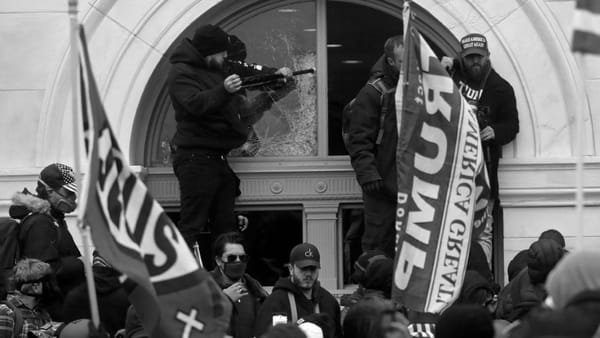Unveiling the Cult of Personality: Leaders' Devotion Tactics and Public Influence

Recently, the concept of a "cult of personality" has drawn renewed attention in political discourse. A cult of personality occurs when a leader uses propaganda, media, charisma, and other tools to create a substantial, almost worship-like following. This phenomenon is often marked by a deliberate emphasis on the leader's image, intense loyalty among supporters, and sometimes a rejection of criticism, no matter how valid. Understanding the mechanics and implications of a cult of personality is essential to recognizing its influence on public perception and governance.
What defines a cult of personality? A cult of personality exists when a leader, political or otherwise, cultivates an idealized and heroic image, often overshadowing the policies, laws, or norms they should uphold. This includes constant media presence, emotional appeals to the public, and consistent slogans or symbols reinforcing the brand. Leaders engaging in this behavior often project themselves as the sole solution to their followers' needs, presenting an image of a savior or protector who operates above ordinary politics or bureaucracy.
Throughout history, various figures have successfully crafted powerful cults of personality, shaping the course of nations. For instance, leaders in mid-20th century Europe were known for their grand public displays, charismatic speeches, and continuous use of media to showcase their strength and resolve. In each case, these leaders used extensive propaganda to keep their images in the public eye and portray themselves as infallible or irreplaceable. Such tactics garnered intense loyalty and suppressed opposition, often leading followers to reject even well-founded critiques as attacks against the leader's vision or purpose.
Today, social media has become a powerful tool for creating a direct, unfiltered connection between leaders and their followers. Leaders who develop cults of personality are often highly active on platforms like Twitter, Instagram, or YouTube, communicating directly with the public and framing events from their unique perspective. Through frequent posts, they can bypass traditional media channels, presenting their actions and policies without the checks and balances of journalistic scrutiny.
Visuals are also critical. Using specific colors, symbols, and merchandise (like hats, shirts, or flags bearing a particular slogan or logo) reinforces the leader's image and creates a sense of community among followers. Rallies and large gatherings are platforms for these leaders to deliver powerful speeches that appeal to emotions, framing themselves as protectors of the people's values, rights, or identity. These gatherings are often visually powerful, creating an "us versus them" mentality that strengthens in-group loyalty and creates a shared identity among supporters.

A key element in any cult of personality is the leader's charisma and ability to connect with followers on a personal level. Charismatic leaders are often adept at storytelling, using relatable narratives that evoke strong emotional responses. By positioning themselves as relatable, they establish a connection that feels genuine and reciprocal to supporters. When criticism arises, leaders often counter with statements that imply they are misunderstood or unfairly attacked by "elites" or "insiders," reinforcing the bond with their base.
Another tactic is the repetition of simple but powerful messages. Slogans and catchphrases are repeated across media channels, merchandise, and speeches. This repetition ingrains specific ideas into the public consciousness, often oversimplifying complex issues into easily digestible soundbites that favor the leader's agenda.
A cult of personality can have profound implications for governance and society. Elevating a leader to an almost mythic status can erode democratic norms by placing the leader above criticism or accountability. Supporters may interpret dissenting opinions as attacks not just on the leader but on themselves and their values. This dynamic can create an environment where opposition voices are drowned out, dismissed as disloyal, or even viewed as a threat to the community.
In such environments, the leader's words often carry more weight than official institutions or policies. Regardless of potential consequences, legal boundaries may be pushed or circumvented, with followers rallying to justify the leader's actions. Over time, this erodes the checks and balances essential to a healthy democracy, as followers may believe that only their leader can genuinely represent their interests.
Moreover, a cult of personality can polarize society, dividing communities into those who are "loyal" to the leader and perceived as outsiders or critics. This polarization often leads to social friction, with both sides viewing each other with distrust or hatred. This division sometimes escalates to the point where it affects personal relationships, workplaces, and communities.
Understanding the signs of a cult of personality is the first step toward addressing its potential effects. Recognizing exaggerated adoration of a single leader, dismissive attitudes toward criticism, and a shift in public dialogue that centers primarily on the leader rather than policies or institutions can be early indicators.
For those outside the cult of personality, maintaining objectivity and focusing on facts rather than personalities is essential. Media literacy and critical thinking skills can help individuals discern propaganda from balanced reporting. Encouraging open dialogue that values diverse perspectives and upholds institutional processes over individual influence is also crucial in countering the divisive impact of such movements.
In democratic societies, safeguarding the balance of power and protecting independent institutions ensures that no single person or personality dominates the political landscape unchecked. A healthy democracy relies on shared values, open discourse, and accountability, principles that can be weakened if a cult of personality takes root. By recognizing the characteristics of this phenomenon and supporting democratic norms, citizens can help preserve a balanced and fair system of governance.
This article is licensed under Creative Commons (CC BY-NC-ND 4.0), and you are free to share and republish under the terms of the license.
At DayMark News, we are committed to exposing the rise of authoritarianism and its threat to democracy. In a time when disinformation spreads like wildfire and democratic institutions face relentless attacks, we need your support to keep the fight alive.
Investigative journalism is our weapon against authoritarian ideologies. We delve deep to uncover the truths others would rather keep hidden, while providing actionable resources to empower individuals like you to defend our democracy.
We believe in transparency, integrity, and the power of a well-informed public. But maintaining a platform dedicated to fearless reporting and mobilization requires resources. We refuse to bow to corporate interests or compromise our mission. That's why we turn to you — our community.
Every donation, big or small, helps us continue our work. With your support, we can produce the in-depth analyses, breaking news, and educational tools needed to resist the rise of extremist movements and protect democratic values for future generations.
This fight belongs to all of us. Together, we can ensure that democracy not only survives but thrives. Please consider making a contribution today to keep DayMark News strong and independent.
Donate Now: Because Democracy Can't Defend Itself.





